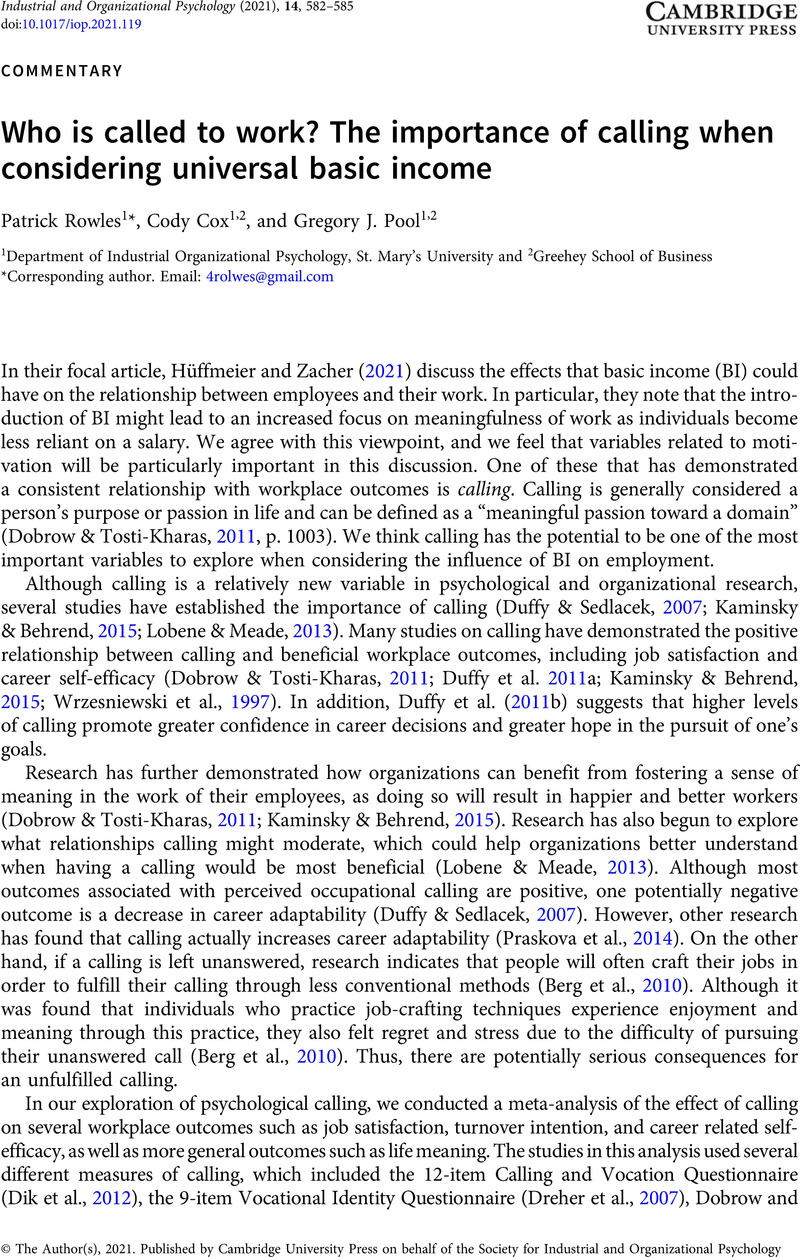Crossref Citations
This article has been cited by the following publications. This list is generated based on data provided by Crossref.
Dobrow, Shoshana R.
Weisman, Hannah
Heller, Daniel
and
Tosti-Kharas, Jennifer
2023.
Calling and the Good Life: A Meta-Analysis and Theoretical Extension.
Administrative Science Quarterly,
Vol. 68,
Issue. 2,
p.
508.
Deng, Yu
2023.
The Silver Lining of Perceived Overqualification: Examining the Nexus Between Perceived Overqualification, Career Self-Efficacy and Career Commitment.
Psychology Research and Behavior Management,
Vol. Volume 16,
Issue. ,
p.
2681.



